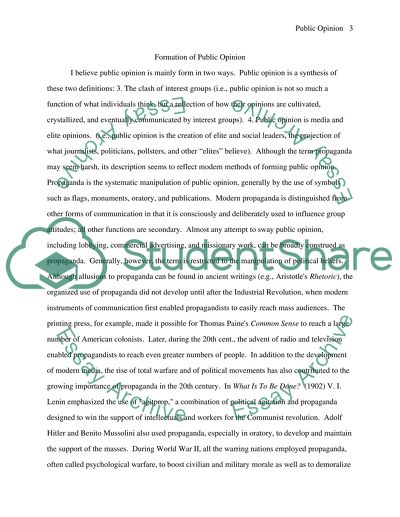Cite this document
(“Public Opinion Essay Example | Topics and Well Written Essays - 1250 words”, n.d.)
Retrieved from https://studentshare.org/sociology/1532514-public-opinion-essay
Retrieved from https://studentshare.org/sociology/1532514-public-opinion-essay
(Public Opinion Essay Example | Topics and Well Written Essays - 1250 Words)
https://studentshare.org/sociology/1532514-public-opinion-essay.
https://studentshare.org/sociology/1532514-public-opinion-essay.
“Public Opinion Essay Example | Topics and Well Written Essays - 1250 Words”, n.d. https://studentshare.org/sociology/1532514-public-opinion-essay.


